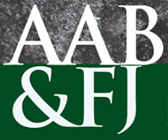Abstract
In present day Indonesia, cases of frauds are rarely covered by the media. Even though some fraud might not be material enough to be detected, the motivation for conducting fraud exist, especially when the internal systems have some leakage. The fraud triangle and the Beneish model are two well-developed theories to understand the motivations for fraud and to detect earnings manipulation in a business. Therefore, this empirical research aims to examine the applicability of the fraud triangle components combined with the M-score from Beneish model. The investigation involves panel data from 270 non-financial companies listed on IDX (Indonesia Stock Exchange) during 2013-2015. The results approved that companies with detected fraud received (1) higher pressure on financial stability, leverage, and financial targets; (2) lower numbers of independent commissioners and more receivables from special (related) parties, and (3) more frequent changes to auditors.
Keywords: Beneish model, Indonesia, financial statement fraud, fraud detection, fraud triangle.
How to Cite:
Fitri, F. A., Syukur, M. & Justisa, G., (2019) “Do The Fraud Triangle Components Motivate Fraud In Indonesia?”, Australasian Accounting, Business and Finance Journal 13(4), 63-72. doi: https://doi.org/10.14453/aabfj.v13i4.5
Downloads:
Download PDF
1266 Views
5796 Downloads

